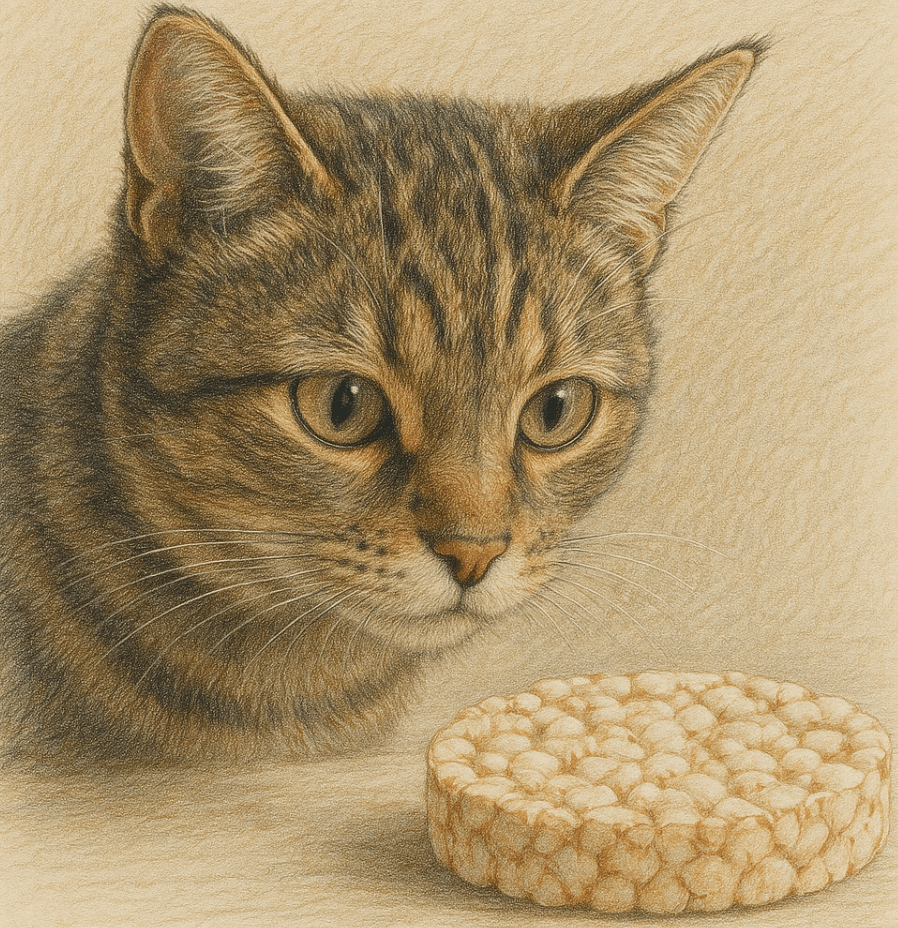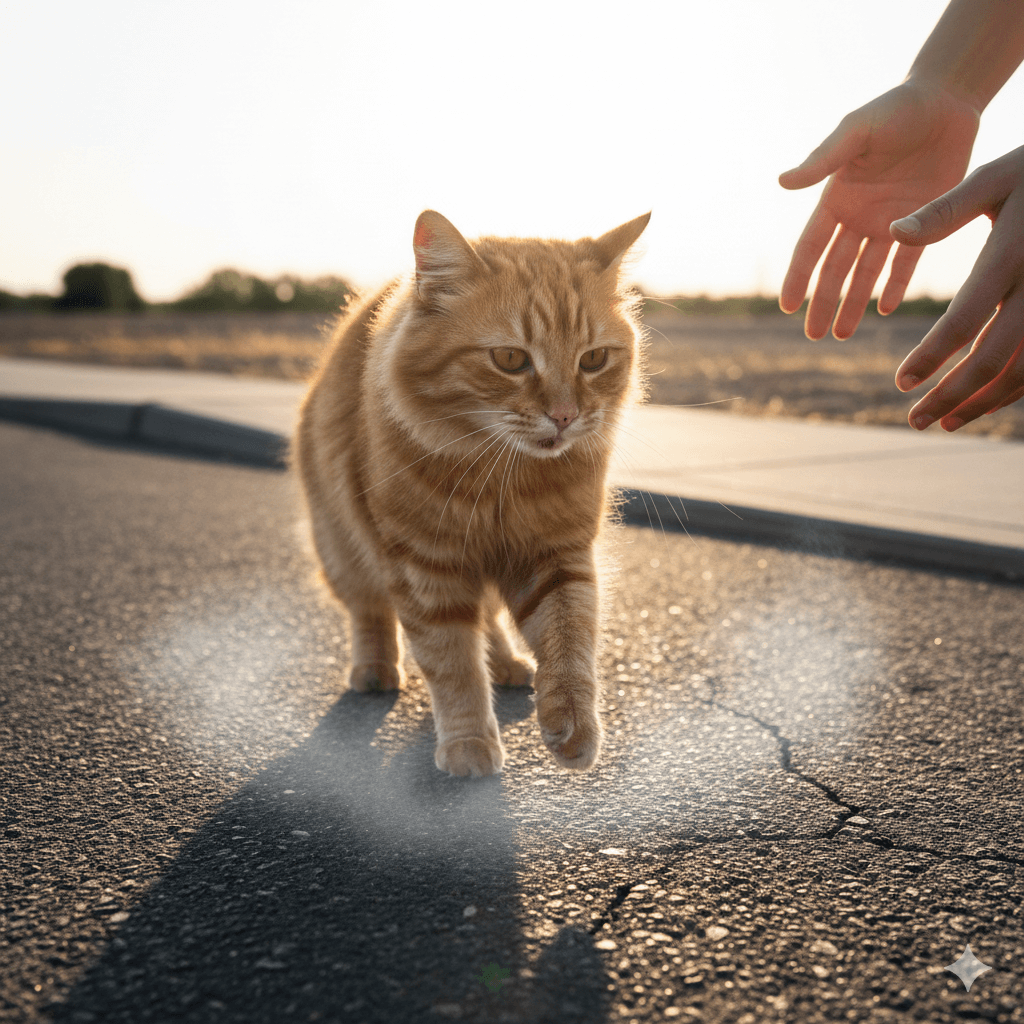Can Cats Eat Rice Cakes?
When it comes to feeding our feline friends, many pet owners wonder whether human snacks like rice cakes are safe for cats. Rice cakes are a popular low-calorie snack for humans, but does that mean they’re suitable for your cat? While cats are obligate carnivores and thrive on a protein-rich diet, there are times when you might consider sharing a small bite of your food with them. However, it’s crucial to understand what foods are safe and which ones could pose risks. In this blog post, we’ll explore whether rice cakes are safe for cats, potential benefits or risks, and how to incorporate them responsibly into your cat’s diet—if at all.
Are Rice Cakes Safe for Cats?
Rice cakes may seem harmless, but not all human foods are suitable for cats. Let’s break down the safety considerations of feeding rice cakes to your feline friend.
Plain Rice Cakes Are Generally Safe:
Plain, unsalted rice cakes made from plain rice are non-toxic to cats in small amounts. However, they offer little nutritional value.Avoid Flavored or Seasoned Varieties:
Many rice cakes come flavored with salt, sugar, spices, or artificial additives, which can upset your cat’s stomach or harm their health.Risk of Choking or Digestive Blockages:
Rice cakes are dry and lightweight, which means they can pose a choking hazard or cause digestive blockages if swallowed whole.Low Nutritional Value for Cats:
Cats require a diet high in animal-based protein and fat, so rice cakes provide no essential nutrients for their dietary needs.Potential Allergic Reactions:
While rare, some cats may have sensitivities or allergies to grains like rice, leading to symptoms like vomiting or diarrhea.
While plain rice cakes aren’t toxic, they should only be given sparingly and under careful supervision to avoid any adverse effects.
Potential Benefits of Rice Cakes for Cats (If Any)
Although rice cakes aren’t a natural part of a cat’s diet, there are a few scenarios where they might serve a limited purpose. Here’s what you need to know.
Easy to Digest in Small Amounts:
Plain rice cakes are gentle on the stomach and may be used as a bland filler food if recommended by your vet for an upset tummy.Low-Calorie Option for Overweight Cats:
If your cat is overweight, a tiny piece of plain rice cake can act as a low-calorie treat without adding significant calories.Encouraging Hydration:
Breaking a rice cake into small pieces and soaking it in water can make it softer and easier for cats to eat, promoting hydration.Training Aid (Rare Cases):
Some cats may enjoy nibbling on a small piece of rice cake as a reward during training sessions, though other treats are more nutritionally beneficial.Temporary Substitute During Food Shortages:
In emergencies, plain rice cakes can serve as a temporary filler if no cat food is available, but only until proper food can be obtained.
While these benefits exist, they are minimal compared to the nutritional needs of cats, making rice cakes far from ideal as a regular treat.
Check this guide 👉Can Cats Eat Orchids? Best 7 Expert Tips!
Check this guide 👉Can Cats Eat Deer Meat? Best 7 Expert Tips!
Check this guide 👉Can Cats Eat Kiwis? Best 7 Expert Tips!

Safe Ingredients in Rice Cakes for Cats | Unsafe Ingredients to Avoid |
|---|---|
Plain white or brown rice | Salt or sodium-heavy seasonings |
No added sugars or sweeteners | Artificial flavors or colors |
Minimal processing (plain varieties only) | Spices like cinnamon or garlic |
Gluten-free options | Sticky or chewy textures |
Low-fat content | High-calorie toppings like chocolate |
How to Safely Introduce Rice Cakes to Your Cat
If you decide to give your cat a taste of rice cake, it’s essential to do so carefully. Follow these guidelines to minimize risks and ensure their safety.
Choose Plain, Unflavored Rice Cakes:
Opt for rice cakes with no added salt, sugar, or flavorings to avoid upsetting your cat’s digestive system.Break It into Small Pieces:
Rice cakes are large and dry, so breaking them into bite-sized pieces reduces the risk of choking or overeating.Offer in Moderation:
Limit rice cake consumption to a tiny piece once in a while—never as a regular part of their diet.Monitor for Adverse Reactions:
Watch for signs of digestive upset, such as vomiting, diarrhea, or lethargy, after introducing rice cakes.Consult Your Veterinarian First:
Always seek professional advice before offering any new human food to your cat, including rice cakes.
By following these steps, you can safely determine whether your cat tolerates rice cakes without issue.
Signs Your Cat May Not Tolerate Rice Cakes
Even if rice cakes are technically safe, some cats may not tolerate them well. Look out for these warning signs to identify potential problems.
Vomiting or Diarrhea:
These symptoms indicate that your cat’s digestive system is struggling to process the rice cake.Lethargy or Discomfort:
A lack of energy or visible discomfort after eating rice cakes suggests an adverse reaction.Loss of Appetite:
Refusing to eat their regular food after trying a rice cake could signal digestive distress.Excessive Drooling:
Drooling may occur if your cat finds the texture unappealing or if they’re experiencing nausea.Allergic Reactions:
Symptoms like itching, swelling, or difficulty breathing require immediate veterinary attention.
Recognizing these signs early allows you to address any issues promptly and prevent further complications.
Common Mistakes to Avoid When Feeding Rice Cakes to Cats
Feeding rice cakes to your cat requires caution to avoid mistakes that could harm their health. Here are some pitfalls to watch out for.
Giving Too Much at Once:
Even plain rice cakes can cause digestive upset if fed in large quantities. Stick to one small piece at a time.Using Flavored or Sweetened Varieties:
Flavors, sugars, and additives can irritate your cat’s stomach or lead to long-term health issues.Ignoring Choking Hazards:
Whole rice cakes are too large and dry for cats to chew properly, increasing the risk of choking.Making Rice Cakes a Regular Treat:
Frequent feeding can displace nutrient-dense foods from their diet, leading to malnutrition.Assuming All Cats Will Like Them:
Many cats may ignore rice cakes altogether since they lack the strong aroma and flavor of meat-based foods.
Avoiding these mistakes ensures your cat stays safe and healthy while exploring new tastes.
Healthier Alternatives to Rice Cakes for Cats
If you’re looking for safe and nutritious treats for your cat, there are plenty of healthier alternatives to rice cakes.
Cooked Chicken or Turkey:
Lean meats like chicken or turkey provide high-quality protein that aligns with your cat’s dietary needs.Pumpkin Puree:
Plain pumpkin puree is a great source of fiber and can aid digestion when given in small amounts.Freeze-Dried Meat Treats:
Specially formulated freeze-dried treats mimic the taste and texture of raw meat, satisfying your cat’s cravings.Catnip or Cat Grass:
Non-food treats like catnip or cat grass offer enrichment without compromising their diet.Homemade Fish Treats:
Small portions of cooked fish (without seasoning) can be a tasty and healthy occasional treat.
These alternatives provide better nutrition and enjoyment for your feline friend.
Understanding Your Cat’s Dietary Preferences and Needs
Cats are naturally drawn to certain foods based on their evolutionary instincts. Understanding their preferences helps explain why rice cakes might not appeal to them.
Obligate Carnivore Instincts:
Cats crave animal-based proteins and fats, making plant-based snacks like rice cakes less appealing.Strong Sense of Smell:
Cats rely heavily on scent to determine whether food is appetizing; rice cakes lack the strong aroma of meat.Texture Preferences:
Many cats prefer soft, moist textures over dry, crunchy ones, making rice cakes less enticing.Nutrient Requirements:
Cats need specific nutrients like taurine, which are absent in rice cakes, reinforcing the importance of species-appropriate food.Individual Taste Variations:
Just like humans, cats have unique tastes—some may nibble on rice cakes, while others will completely ignore them.
By recognizing these factors, you can better tailor your cat’s diet to meet their natural instincts and preferences.
Frequently Asked Questions About Cats and Rice Cakes
Can kittens eat rice cakes?
No, kittens have sensitive digestive systems and should stick to species-appropriate kitten food for proper growth and development.
What should I do if my cat accidentally eats a flavored rice cake?
Monitor them closely for signs of distress. Contact your vet immediately if they show symptoms like vomiting, diarrhea, or lethargy.
Are brown rice cakes better than white rice cakes?
Both are equally safe in small amounts, but neither provides significant nutritional value for cats.
Can rice cakes replace cat food in emergencies?
Only temporarily and in very small amounts. Rice cakes lack the protein and fat cats need to thrive.
How often can I give my cat a piece of rice cake?
Once every few weeks at most, and only as an occasional treat—not a dietary staple.
Prioritizing Your Cat’s Health When It Comes to Rice Cakes
While cats can technically eat plain rice cakes in moderation, they offer no real nutritional benefit and should never replace a balanced, protein-rich diet. As obligate carnivores, cats thrive on foods specifically formulated for their unique dietary needs. If you choose to share a tiny piece of rice cake with your cat, always prioritize safety by selecting plain varieties, breaking them into small pieces, and monitoring for adverse reactions. Remember, your cat’s health and happiness depend on providing them with the right nutrients, so always consult your veterinarian before introducing new foods.
Newfoundland Dog Personality: Best 7 Expert Tips! – Discover the gentle, loyal, and protective nature of this giant breed perfect for families.
Can Hot Pavement Burn Your Cats Paws? Best 7 Expert Tips! – Learn how to protect your cat’s paws from hot surfaces and prevent painful burns this summer.
Can Hot Pavement Burn Your Dogs Paws? Best 7 Expert Tips! – Learn how to protect your dog’s paws from hot surfaces and ensure safe summer walks.
Irish Wolfhound Size: Best 7 Expert Tips! – Discover the ideal height, weight, and care tips for this majestic giant breed. Learn how to manage their impressive stature responsibly.




